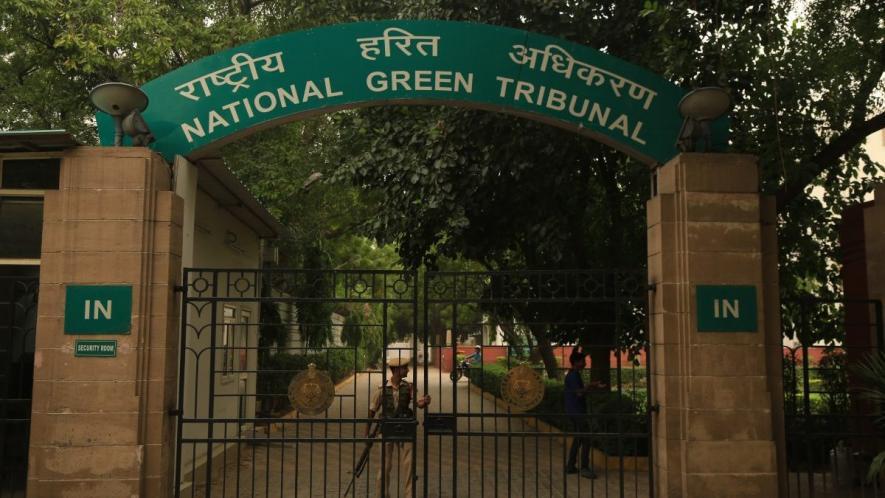NGT, Orissa HC Red-Flag Green Signal to JSW Steel Project

File Image
Kolkata: The All India Kisan Sabha (AIKS) and Jindal Posco Pratirodh Sangram Samiti recently scored a win against the Sajjan Jindal Group-promoted JSW Utkal Steel Limited at the National Green Tribunal (NGT) and the Orissa High Court (HC).
JSW Utkal Steel plans to set up a 13.2 million tonne per annum (MTPA) integrated steel plant in Odisha’s Jagatsinghpur district.
The Rs 65,000 crore JSW project comprises the plant, a 10 MT cement grinding unit and a 900 MW captive power complex, part of an interlinked project for an all-weather, multi-cargo greenfield jetty(ies) of 52 MT handling capacity on Jatadhari Muhan river, near Paradip port, in the same district.
The project will benefit the Centre and the state to the extent of more than Rs 5,000 crore over 13 years by way of taxes and generating employment for 15,000 people. The steel plant will facilitate the setting up of a good number of ancillary activities. The land required is 1,206 hectares, of which 136.47 is non-forestland and 1,069.53 forestland.
It is an attempt by the Naveen Patnaik government to reactivate the plan for a steel plant at the same site where South Korean steel giant POSCO was forced to abandon its 12 MTPA project following massive protests by locals around five years ago.
In a March 23 order, the NGT stayed the environmental clearance (EC) given by the Union ministry of environment, forest and climate change (MoEFCC) to the project for three months and ordered a fresh review with emphasis on “reasoned consideration” by the expert appraisal committee (EAC).
The NGT drew upon the Supreme Court’s observation in Narmada Bachao Andolan vs Union of India: “Normally, such decisions are taken by the government after due care and consideration. In a democracy, the welfare of the people at large, and not merely of a small section of society, has to be the concern of a responsible government.”
Calling for striking a balance between ecology and environment on the one hand and projects of a public utility on the other, the court observed: “The trend of authorities is that a delicate balance has to be struck between ecological impact and development.”
The HC, in its March 24 order, found merit in the contention of traditional forest dwellers that the state government “had and is continuing the process to alienate [divert] forest land under Orissa Government Land Settlement Act, 1962, neglecting sub-section (5) in Section 4 of Scheduled Tribes and Other Traditional Forest Dwellers (Recognition of Forest Rights) Act, 2006, passed by Parliament”.
The sub-section stipulates that no member of a forest dwelling Scheduled Tribes or another traditional forest dweller shall be evicted or removed from forest land under his occupation “till the recognition and verification procedure is complete”.
Since the Odisha government didn’t follow the 2006 Act, which makes it compulsory to convene members of gram panchayats regarding such projects, it is a case for interim protection pending adjudication, the court observed.
The court also made it clear that for the purpose of alienation of land, “there must first be compliance with requisites laid down in the environment ministry’s circular of August 3, 2009, and any subsequent circular on the subject. Therefore, leases will remain stayed till all requirements, including recognition of traditional forest dwellers, are fulfilled”.
The site for the JSW project, which comprises panchayats of Dhinkia-Gobindpur, Nuagan and Gadakujanga and 13 villages under their jurisdiction has witnessed a continuous agitation for around 15 years since POSCO’s arrival on the scene.
The Biju Janata Dal (BJD) government’s search for a new promoter and the Jindal Group’s positive response around four years back, which marked the start of a fresh land acquisition drive, fuelled the agitation.
In the course of the ongoing agitation, five agitators have died during police action, according to AIKS leader Prashant Paikroy, who coordinates anti-displacement protests.
The project proponent has claimed that a social impact assessment was carried out and provisions made for rehabilitation, including medical treatment, of families likely to be displaced and “land owners had given consent to hand over the land. The environment ministry has argued that clearance was granted on the EAC’s recommendation “which is compliant with all the requirements”.
JSW Steel applied for the clearance on August 13, 2018, and was granted terms of reference on March 19, 2019. A public consultation was held on December 20, 2019.
The NGT passed its order based on the following conclusions:
1) Cumulative environmental impact assessment (EIA) was available only after the public hearing and only a sketchy EIA was the basis of EAC’s consideration, which should not have been the case.
2) There was no adequate evaluation before approving the sourcing of water from Mahanadi when drinking water is scarce. The recommendation accepting the contrary stand of the project proponent is not based on the independent evaluation.
3) The proposal to locate a jetty within 500 metres of the Paradip Port did not find favour in the report prepared earlier by then-environment secretary Meena Gupta.
4) Paradip is a polluted industrial area. The social impact assessment was conducted later and was not part of the public hearing.
5) This tribunal had, in its order of March 30, 2012, adversely commented upon the POSCO project, which was later abandoned.
“Conditions stipulated in the EC granted to POSCO will have to be considered, in case, ECs are to be granted,” the tribunal observed adding: “We are conscious that the project involves huge investment. At the same time, the principle of sustainable development cannot be ignored….”
Paikroy said, “We have been fighting all these years. Following the NGT and Orissa High Court verdicts, the Odisha government, the ministry and the promoter will initiate more steps to see that the proposal fructifies.”
But AIKS is “firm in our objective and will take back-to-back measures as warranted by circumstances. The 2006 Act has to be complied with and coastal regulatory zone norms have to be followed. There is no question of a project accentuating human misery. We have repeatedly tried to impress this upon the state government”, Paikroy added.
The writer is a Kolkata-based senior freelance journalist. Views are personal.
Get the latest reports & analysis with people's perspective on Protests, movements & deep analytical videos, discussions of the current affairs in your Telegram app. Subscribe to NewsClick's Telegram channel & get Real-Time updates on stories, as they get published on our website.
























